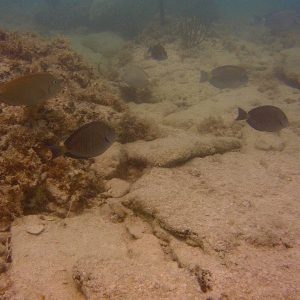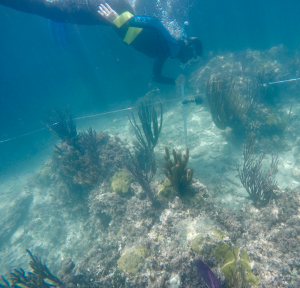And what is classroom learning good for, anyways?
It is Tuesday morning. From the back of the classroom, I squint at the pictures of fish being projected on the board, and scribble in a spiral notebook. Queen angelfish: yellow ring on head, I write as the instructor describes the species’ habitat. She flips to the next slide. Townsend angelfish, I write, less common.

Slipping into the room, with its rows of desks, overhead projector, and professorial monologue – had felt like donning my own old, well-worn clothes. Sixteen years of traditional education have made this role as a student a familiar one.
Yet this time, the circumstances are unusual, and entering the room as a pupil feels suddenly bizarre. It is mid-June, my third week on the island of Bermuda. Just down the hill from this classroom, the turquoise ocean plays against the research station dock. I am at the Bermuda Institute of Ocean Sciences to conduct a field research project assessing how polluted groundwater affects the chemistry and ecology of near-shore coral reefs. Over breakfast, someone had mentioned that a summer course instructor would be lecturing her class on fish identification today. I have been planning to conduct fish surveys on the coral reefs I am studying, but (rather critically) first need to learn to identify all the fish. The timing of the lecture couldn’t be more perfect, so here I am: hunched over a table in the very back of the classroom, listening and scribbling notes like my thesis depends on it.


